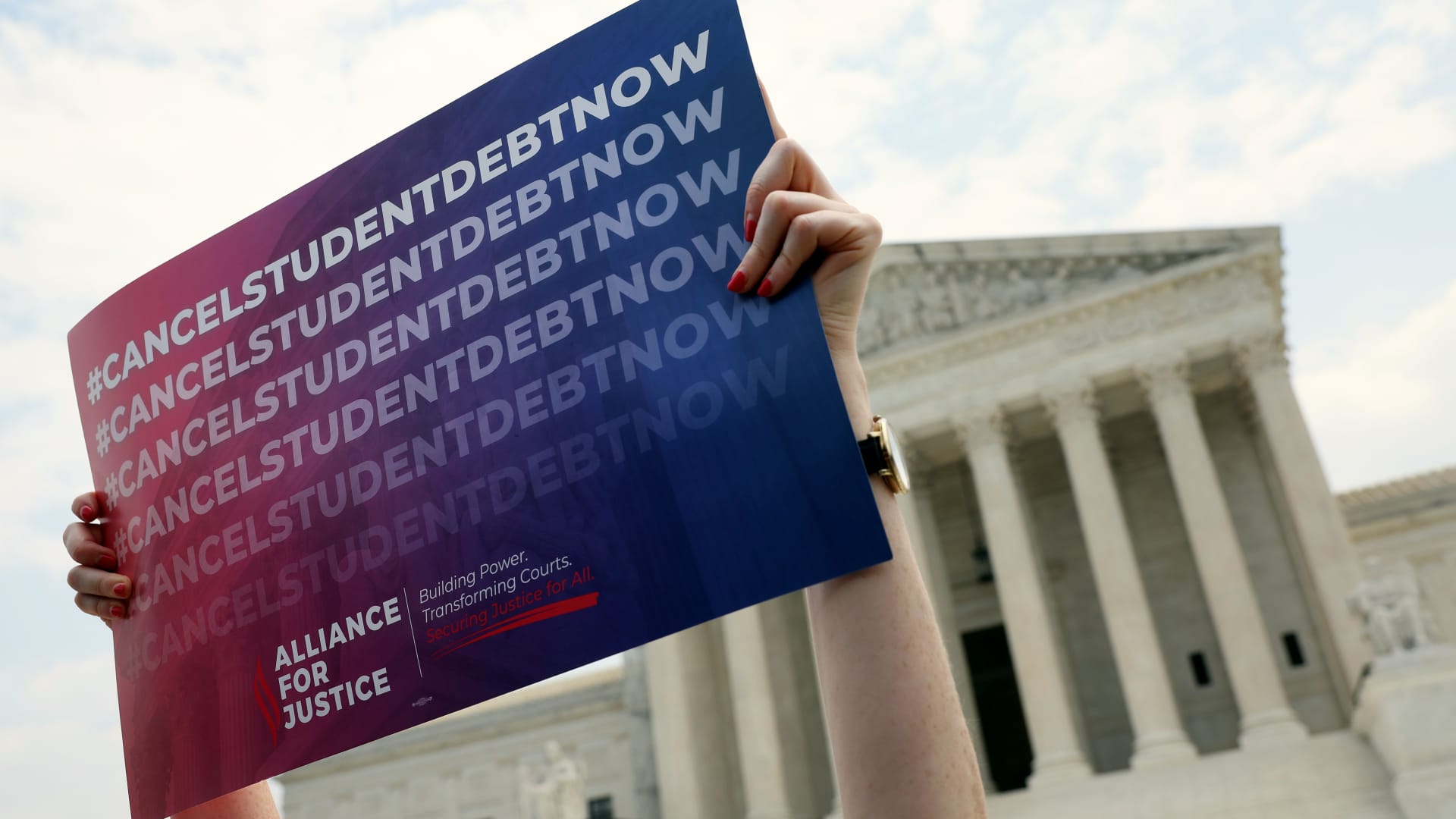There is a possibility of a government shutdown as Congress faces a deadline to pass 12 spending bills, with the most likely scenario being a continuing resolution to extend last year's spending levels for a designated period of time.
The US government faces a potential shutdown if Congress fails to agree on funding past September 30, which would be the first shutdown since December 2018 and could result in a longer standoff between parties.
If Congress fails to provide funding for the fiscal year starting Oct. 1, many U.S. government services would be disrupted, federal workers would be furloughed without pay, and essential workers would remain on the job without pay.
Millions of federal employees and military personnel face the prospect of a government shutdown, which would result in financial hardships for American families, disruptions in services, and potential harm to the economy.
The looming government shutdown may disrupt the return of student loan payments on October 1, as loan servicers struggle to handle the influx of borrowers seeking assistance.
The federal government is likely to face a shutdown that will affect various services, disrupt workers' pay, and create political turmoil as Republicans demand deep spending cuts.
The impending federal shutdown, combined with other economic challenges such as rising gas prices, student loan payments, and reduced pandemic savings, is expected to strain American households and potentially weaken economic growth in the last quarter of the year.
A government shutdown could result in significant disruptions to air travel, delays in food safety inspections, reduced workplace inspections and worker safety risks, closure of museums and national parks, disruptions to student aid programs and federal funding for schools, and delays in federal reimbursements for Meals on Wheels, among other impacts.
Google searches about the potential government shutdown in the US are increasing, with a particular interest in how it would affect Social Security, veterans' benefits, and the US dollar.
A potential US government shutdown could have a negative impact on the country's credit, according to Moody's, due to disrupted services, furloughed federal workers, and weakening fiscal policymaking.
A potential government shutdown looms as Congress struggles to pass a funding bill by Saturday night, which could result in federal workers going without pay and essential services continuing while non-essential services halt.
Over 1 million military members and furloughed civilian employees are at risk of going without pay during the government shutdown, which would have significant global impacts on military readiness and send a dangerous message to adversaries, according to Pentagon spokesperson Sabrina Singh.
The U.S. is on the verge of a government shutdown as Congress debates spending levels and aid to Ukraine, which could potentially affect government operations and federal workers' paychecks.
A government shutdown in the U.S. could cause significant disruptions in the stock and bond markets, with the Securities and Exchange Commission being forced to furlough most of its staff and leaving the market oversight at a "skeletal" crew level.
There is a 90% chance of a government shutdown, according to Goldman Sachs, as the deadline looms and little progress has been made in negotiations.
Federal agencies are warning their workers of a possible government shutdown, where employees may not receive pay, if Congress fails to reach a funding deal by the end of September 30th.
The U.S. government is facing a potential shutdown if Congress does not resolve a deadlock by this weekend, which would result in furloughs or unpaid work for federal workers and military employees, but experts believe the impact on the economy and stock market will be short-lived.
A government shutdown due to a short-term spending bill will cause financial hardship for federal employees and contractors, but there are steps they can take such as contacting their landlord or mortgage loan servicer for assistance.
Summarizing the text given, the US is preparing for a government shutdown as the funding deadline approaches, with potential consequences including delays in work authorizations for migrants, impacts on the Federal Aviation Administration, uncertainty in the House regarding a procedural vote, and concerns about the effects on small businesses and border security.
A potential US government shutdown could disrupt the release of important economic data, leading to market volatility and forcing investors to rely on alternative sources of information, potentially impacting monetary policy decisions and delaying key reports such as the October 6 payroll report.
Barring a last-minute agreement, bars, museums, and other businesses are offering discounted eats, drinks, and museum admission to furloughed federal employees during the government shutdown.
The United States government is at risk of a partial shutdown, which could impact the progress of crypto bills and hinder the functioning of financial regulators.
Congress averted a government shutdown with a temporary deal that keeps funding at current levels until Nov. 17, providing relief for millions of Americans and avoiding a potential furlough of federal employees and delayed food assistance programs, but leaving some, like House Speaker Kevin McCarthy, facing challenges and excluding additional U.S. aid to Ukraine.
